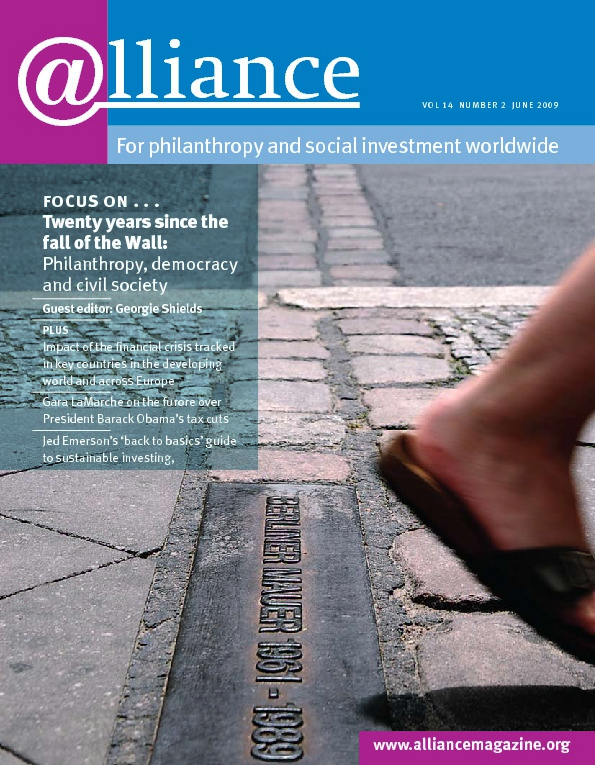If you run major charitable events and are forced out of business because the charities you work with don’t like your methods, there are various ways of dealing with the trauma. You could seek counselling help. You could try to understand what it was about your methods that made your erstwhile partners dislike them. Or you could write a book to explain why you were right all along.
Dan Pallotta has chosen the last of these options. As I read his book, I found myself wishing he hadn’t.
There is much wrong with the ways in which money for charitable work has traditionally been raised, administered and spent. We shouldn’t expect charity bosses to work for love: they have families to clothe, house and feed like the rest of us. We shouldn’t expect charities to deliver services without spending realistic sums to make sure they are delivered effectively. We should expect charities to do more than apply sticking plasters to intolerable situations – and if in order to achieve real change, they have to advertise, why shouldn’t they do so? These ideas are part of an increasingly accepted body of conventional wisdom.
But Uncharitable is written as if they were controversial. The book is based on a series of what seem to me to be false, and outdated, premises:
- The best people will only work for ‘top dollar’. From this follows …
- Those who earn most money are by definition the best people. Much research suggests that job satisfaction is found in a variety of non-financial ways, implying that the wisest (and best?) people will seek a trade-off between job satisfaction and salary.
- Only ‘rank and file’ people act out of altruism – the people who participate in the kinds of event Pallotta used to run. People at the top of organizations, on the other hand, need the incentive of money, so should be paid at commercial rates. Pallotta quotes a comment by a charity professional in the Chronicle of Philanthropy who suggests that we do not need to pay someone $350,000 to get ‘the best and the brightest’. To which he replies: ‘You couldn’t get Bill Gates for $350,000 a week, let alone $350,000 a year.’
- Charities work only on short-term issues and are not concerned about change. That, sadly, may be true of many, but it is also untrue of many.
- Charities don’t advertise because this is disapproved of. This is simply untrue – ask the development agencies, birth control charities and others with large advertising budgets.
In essence, Pallotta believes that almost any means that would be acceptable in the ‘for profit’ world should also be deployed in charitable work because to do otherwise is to short-change the ultimate beneficiaries – the poor, the hungry, the sick. It doesn’t matter how money is raised for good causes so long as it’s raised. He wants us to focus on the ‘morality of outcomes’ rather than the ‘morality of tactics’. He writes: ‘Ironically, by denying charity the tools of capitalism … we place charity at a severe disadvantage … we prohibit charity from using the tools of capitalism to rectify the very disparities some would claim capitalism creates.’
The phrase ‘some would claim’ is a bit of a give-away – and there is some irony in the fact that Uncharitable has been published just as the supposed merits of the laissez-faire system for which in essence Pallotta is an apologist are revealed in all their weakness. Lest there be any doubt about his position, he quotes Ayn Rand’s The Virtue of Selfishness approvingly – she who believed, among other things, that one’s life’s proper purpose is the pursuit of one’s own happiness or self-interest.
Pallotta goes on to argue that the US ideology of charity of which he is so critical has its roots in the attitudes of the Puritans who came to America in 1630. It apparently does not occur to him to wonder why the ideology of charity is very similar in the UK, and indeed in many other countries.
The final part of the book (aside from the 75 pages of endnotes and references) is a 40-page ‘case study’ of the rise and fall of Pallotta TeamWorks, which, he says, raised $305 million for charity after all expenses, before the company collapsed in the wake of major donors and beneficiaries withdrawing their support because of the level of costs incurred in the process of raising this money.
I have not been very charitable about Uncharitable. It is right that we should question the assumptions that underpin much charitable endeavour, and to the extent that this is what Pallotta seeks to do, I applaud his intent. But he asks us to make judgements on the basis of outcomes rather than means or motives. On that basis, this book fails.
Steven Burkeman is an independent consultant, based in the UK, working mainly with foundations and human rights organizations. Email burkeman@gn.apc.org
Uncharitable: How restraints on nonprofits undermine their potential
Dan Pallotta Tufts University Press US$35
ISBN 9781584657231
To order
http://www.uncharitable.net



Comments (0)